第1章 CHAPTER I.(1)
Travellers left and entered our car at every stopping of the train. Three persons, however, remained, bound, like myself, for the farthest station: a lady neither young nor pretty, smoking cigarettes, with a thin face, a cap on her head, and wearing a semi-masculine outer garment; then her companion, a very loquacious gentleman of about forty years, with baggage entirely new and arranged in an orderly manner; then a gentleman who held himself entirely aloof, short in stature, very nervous, of uncertain age, with bright eyes, not pronounced in color, but extremely attractive,--eyes that darted with rapidity from one object to another.
This gentleman, during almost all the journey thus far, had entered into conversation with no fellow-traveller, as if he carefully avoided all acquaintance. When spoken to, he answered curtly and decisively, and began to look out of the car window obstinately.
Yet it seemed to me that the solitude weighed upon him. He seemed to perceive that I understood this, and when our eyes met, as happened frequently, since we were sitting almost opposite each other, he turned away his head, and avoided conversation with me as much as with the others. At nightfall, during a stop at a large station, the gentleman with the fine baggage--a lawyer, as I have since learned--got out with his companion to drink some tea at the restaurant. During their absence several new travellers entered the car, among whom was a tall old man, shaven and wrinkled, evidently a merchant, wearing a large heavily-lined cloak and a big cap. This merchant sat down opposite the empty seats of the lawyer and his companion, and straightway entered into conversation with a young man who seemed like an employee in some commercial house, and who had likewise just boarded the train. At first the clerk had remarked that the seat opposite was occupied, and the old man had answered that he should get out at the first station. Thus their conversation started.
I was sitting not far from these two travellers, and, as the train was not in motion, I could catch bits of their conversation when others were not talking.
They talked first of the prices of goods and the condition of business; they referred to a person whom they both knew; then they plunged into the fair at Nijni Novgorod. The clerk boasted of knowing people who were leading a gay life there, but the old man did not allow him to continue, and, interrupting him, began to describe the festivities of the previous year at Kounavino, in which he had taken part. He was evidently proud of these recollections, and, probably thinking that this would detract nothing from the gravity which his face and manners expressed, he related with pride how, when drunk, he had fired, at Kounavino, such a broadside that he could describe it only in the other's ear.
The clerk began to laugh noisily. The old man laughed too, showing two long yellow teeth. Their conversation not interesting me, I left the car to stretch my legs. At the door Imet the lawyer and his lady.
"You have no more time," the lawyer said to me. "The second bell is about to ring."Indeed I had scarcely reached the rear of the train when the bell sounded. As I entered the car again, the lawyer was talking with his companion in an animated fashion. The merchant, sitting opposite them, was taciturn.
"And then she squarely declared to her husband," said the lawyer with a smile, as I passed by them, "that she neither could nor would live with him, because" . . .
And he continued, but I did not hear the rest of the sentence, my attention being distracted by the passing of the conductor and a new traveller. When silence was restored, I again heard the lawyer's voice. The conversation had passed from a special case to general considerations.
"And afterward comes discord, financial difficulties, disputes between the two parties, and the couple separate. In the good old days that seldom happened. Is it not so?" asked the lawyer of the two merchants, evidently trying to drag them into the conversation.
Just then the train started, and the old man, without answering, took off his cap, and crossed himself three times while muttering a prayer. When he had finished, he clapped his cap far down on his head, and said:
"Yes, sir, that happened in former times also, but not as often.
In the present day it is bound to happen more frequently. People have become too learned."The lawyer made some reply to the old man, but the train, ever increasing its speed, made such a clatter upon the rails that Icould no longer hear distinctly. As I was interested in what the old man was saying, I drew nearer. My neighbor, the nervous gentleman, was evidently interested also, and, without changing his seat, he lent an ear.
"But what harm is there in education?" asked the lady, with a smile that was scarcely perceptible. "Would it be better to marry as in the old days, when the bride and bridegroom did not even see each other before marriage?" she continued, answering, as is the habit of our ladies, not the words that her interlocutor had spoken, but the words she believed he was going to speak. "Women did not know whether they would love or would be loved, and they were married to the first comer, and suffered all their lives. Then you think it was better so?" she continued, evidently addressing the lawyer and myself, and not at all the old man.